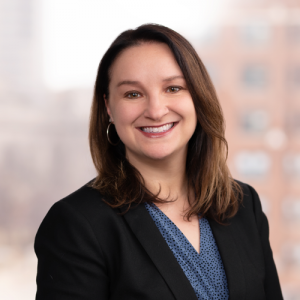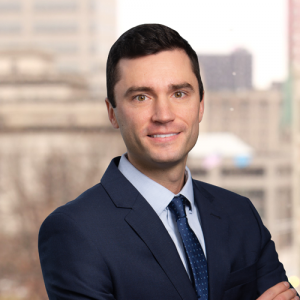Last week, Congress passed the Bipartisan Budget Act of 2015 (“Budget”), and President Obama signed the Budget into law on November 2, 2015. Among many other changes, the Budget includes an impending exclusion on hospital coverage for off-campus hospital outpatient departments that first bill for services on or after November 2, 2015. Even though site-neutral payment proposals have been discussed in the past, the Budget moved quickly through the House and Senate once it was introduced. As a result, there are many questions as to how this provision will impact hospitals. Below is a description of the exclusion, the impact on providers and facilities and a discussion of issues related to implementation.
Overview of Exclusion
The Budget amended Social Security Act (“SSA”) Section 1833(t) to exclude from Medicare’s hospital outpatient prospective payment system (“OPPS”) any services (except for items and services furnished by a dedicated emergency department) furnished at an off-campus outpatient department of a hospital beginning January 1, 2017. This provision applies to off-campus hospital departments, as defined in 42 C.F.R. §413.65(a)(2) (the Medicare “provider-based rule”), that did not bill for services under the OPPS prior to November 2, 2015. “Off-campus” is defined as the physical area that is located more than 250 yards from the main hospital campus building or a remote location of the hospital. It is important to note that on-campus hospital departments will not be affected by the exclusion.
The Budget effectively grandfathers any off-campus departments of a hospital that have billed Medicare under the OPPS prior to the date of the Budget’s enactment (i.e., prior to November 2, 2015). However, if a hospital first bills for services at an off-campus department on or after November 2, 2015, it will be paid under the OPPS through December 31, 2016. Beginning January 1, 2017, services at those locations will be paid under other applicable payment systems that are not defined but are likely to include the Medicare Physician Fee Schedule (“PFS”) and the Ambulatory Surgery Center payment system (“ASC-PS”), which are generally lower than the OPPS. Below we refer to off-campus outpatient departments impacted by the provision as “non-grandfathered” facilities and off-campus outpatient departments that billed for services prior to November 2, 2015 as “grandfathered” facilities.
Applicability to Other Provider Types
Critical Access Hospitals. The Budget amended the statute that authorizes coverage and payment under the OPPS. Since critical access hospitals (“CAHs”) are paid for outpatient services under SSA Section 1834(g), the exclusion does not apply to CAH off-campus sites. If applicable requirements are met, CAHs can continue to establish off-campus departments on or after November 2, 2015 and continue to be paid based on reasonable cost after January 1, 2017. However, a CAH that is considering opening a new off-campus department should ensure that the facility is the appropriate distance from other hospitals and CAHs so as to not jeopardize its CAH status as required by 42 C.F.R. §485.610(e).
Rural Health Clinics. In addition to hospital departments, many hospitals operate provider-based rural health clinics (“RHCs”). RHCs are separately enrolled and certified providers under the Medicare program, and the exclusion should not apply to the RHC services. More specifically, the exclusion in SSA Section 1833(t) applies only to off-campus “departments of a provider,” and provider-based RHCs are “provider-based entities” (each as defined in 42 C.F.R. §413.65(a)). Additionally, RHC services are not paid under the OPPS. Therefore, a hospital should be able to establish a new off-campus provider-based RHC on or after November 2, 2015 and it should not affect the payment for RHC services.
However, the exclusion does raise the question of how hospitals should bill and get paid for services that are outside of the RHC benefit. Currently, if the location satisfies Medicare’s provider-based requirements, those services are paid as hospital outpatient services under the OPPS (unless provider-based to a CAH). As a result, payment for non-grandfathered locations will likely fall under the exclusion.
Grandfathered and Non-Grandfathered Facilities
As described above, the Budget legislation effectively creates a grandfathered status for off-campus departments of a hospital billing as hospital services under OPPS before November 2, 2015. However, it is not clear how CMS will implement the exclusion beginning January 1, 2017. Below are items to consider related to the exclusion, which CMS will need to address in future rulemaking or other guidance.
- Facilities Under Development. Many hospitals have off-campus outpatient departments that are currently in development but have not yet billed for services. A strict reading of the Budget legislation suggests that facilities under development but not yet billing for services as hospital services prior to November 2, 2015 would not qualify for grandfathered status. In the past, however, CMS extended similar types of grandfathered statuses to facilities or providers that were under development at the time a law changed. For example, in 2007, CMS put new limitations on off-campus provider-based clinics for CAHs but allowed facilities that were in existence or under development to be considered for grandfathered status on a case-by-case basis. This seems unlikely here given the statutory language change, but CMS should be encouraged to address whether facilities under development will be grandfathered since hospitals may have expended significant time and resources to develop these facilities.
- Enrollment of Non-Grandfathered Facilities. CMS will need to clarify whether non-grandfathered facilities should continue to be enrolled as a location of the hospital on the CMS-855A or if the hospital will need to enroll as a separate supplier using the CMS-855B to bill for services at those locations. Enrollment as a separate supplier could have significant implications on the operations of these locations including registration, consents, supervision requirements, etc.
- Billing and Payment at Non-Grandfathered Facilities. CMS will need to provide guidance on how hospitals should bill for services at non-grandfathered facilities beginning January 1, 2017. We anticipate that CMS will use one of following approaches: (i) continue to have services billed on the Form UB-04 but paid under the PFS or the ASC-PS (as applicable); or (ii) require that services at non-grandfathered facilities be billed on the Form 1500. The first approach would be similar to how hospitals currently bill and get payment for outpatient therapy services. Billing for services provided at non-grandfathered locations on a UB-04 would be the simplest way to implement this provision from a practical and operational perspective.
- Services Not Covered Under Other Payment Systems. The Budget states that effective January 1, 2017, services (except for items and services furnished by a dedicated emergency department) at non-grandfathered facilities will be paid under another payment system, such as the PFS or the ASC-PS. However, not all services that are covered under the OPPS are covered under another system. For example, some surgical procedures are covered under the OPPS but not the ASC-PS. CMS will need to confirm that all services are covered by an applicable payment system.
- Emergency Department Services. The Budget legislation contains an exception for items and services furnished by a dedicated emergency department as defined in 42 C.F.R. § 489.24(b). However, it is not clear how the hospital should bill for non-emergency items or services furnished during the visit. CMS will need to clarify how the hospital should bill for such services provided at a non-grandfathered department during an emergency department visit
- Multi-campus Hospital Structures. The exclusion applies to off-campus outpatient hospital services but appears to leave open the possibility of opening new outpatient hospital departments that are within 250 yards of a remote location (an inpatient location of a hospital not on the hospital’s main campus – typically referred to as multi-campus hospitals). Hospitals should explore this potential option if they are looking to expand their operations.
- Provider-Based Denials. The SSA amendment raises the question of whether a provider-based denial by CMS issued on or after November 2, 2015 will revoke a facility’s grandfathered status permanently or if a facility can reestablish its grandfathered provider-based status for purposes of OPPS payment.
- Moving or Adding New Services. CMS will also need to clarify whether a grandfathered facility can move to a new location or add new services at an existing location and maintain its grandfathered status.
- 340B Child Sites. The 340B Drug Pricing Program relies in part on the provider-based status of an off-campus location when determining whether a facility is considered a “Child Site” under the program. If the exclusion impacts not only payment, but also the provider-based status of new off-campus departments, it could limit a hospital’s ability to provide 340B drugs to its patients.
Practical Takeaways
- The coverage exclusion applies to off-campus hospital departments that did not bill for services under the OPPS prior to November 2, 2015. These non-grandfathered locations will only be paid under the OPPS through December 31, 2016. Beginning January 1, 2017, non-grandfathered locations will be paid according to other applicable payment systems.
- The coverage exclusion does not apply to CAHs or provider-based RHCs.
- Since there are numerous open questions as to implementation of the coverage exclusion, hospitals should be on alert for future guidance from CMS. As proposed or temporary regulations are issued, it is important to take the initiative to help shape that guidance through commentary.
- Hospitals should review existing sites for documentation that they qualify as grandfathered facilities. This should include documentation that services were being billed as OPPS covered services at the site as of November 1, 2015, that locations are listed on the CMS 855A as hospital locations, etc.
If you have any questions or would like additional information about this topic, please contact:
- David H. Snow at (414) 721-0447 or dsnow@wp.hallrender.com;
- Lori A. Wink at (414) 721-0456 or lwink@wp.hallrender.com;
- Regan E. Tankersley at (317) 977-1445 or rtankersley@wp.hallrender.com;
- Joseph R. Krause at (414) 721-0906 or jkrause@wp.hallrender.com; or
- Your regular Hall Render attorney.
Please visit the Hall Render Blog at http://blogs.hallrender.com/ or click here to sign up to receive Hall Render alerts on topics related to health care law.




